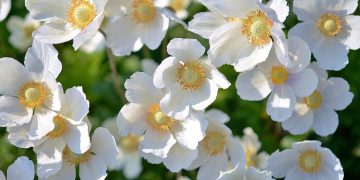Green Guard: Eco-Friendly Solutions for Organic Pest Management
Organic pest management is becoming an increasingly popular method for maintaining both agricultural and home garden health. It champions environmentally friendly practices that not only protect plants but also support ecosystem health, including beneficial insects. Green Guard represents an innovative approach to pest control that aligns with sustainable agriculture and healthy living. This article explores the benefits and methods of organic pest management and how Green Guard can be a cornerstone of this green revolution.
Why Choose Organic Pest Management?
Opting for organic pest control methods encapsulates a commitment to avoiding synthetic chemicals in favor of more natural solutions. These eco-friendly techniques minimize environmental pollution while promoting biodiversity. They do not contribute to the development of chemically resistant pest species and help maintain a balance within the ecosystem.
Health Implications
Traditional pesticides often contain harmful chemicals that can pose health risks to humans, animals, and beneficial insects like bees. Organic methods, including those under the Green Guard umbrella, ensure the food growing on your farm or garden is free of harmful residues, safeguarding your health and that of your family or customers.
Environmental Impact
Using organic pest management techniques reduces the risk of water contamination from runoff and protects soil quality by preventing chemical buildups. This safeguards local wildlife and aquatic organisms, fostering a healthier environment overall.
Core Principles of Green Guard in Pest Management
Green Guard employs several key principles aimed at organic and sustainable pest control. These strategies are designed to be gentle on the planet while effective in keeping pests at bay.
Integrated Pest Management (IPM)
IPM is an eco-friendly strategy that employs a combination of techniques designed to prevent pest populations from reaching damaging levels. IPM focuses on long-term prevention and can include mechanical, physical, and biological methods alongside natural pesticides. Green Guard specializes in optimizing these techniques to maximize efficacy and sustainability.
Biological Control
This involves the use of natural predators or parasites to manage pest populations. For instance, introducing ladybugs into a garden can help control aphid populations effectively. Green Guard harnesses the power of nature’s own checks and balances to maintain harmony in your agricultural ecosystems.
Botanical Insecticides
Sometimes, natural pesticides are necessary to manage excessive pest populations. Green Guard produces botanical insecticides that are derived from plants. These solutions break down quickly in the environment, reducing exposure risk and environmental impact compared to synthetic alternatives.
Implementing Green Guard in Your Garden or Farm
Step 1: Assessment
The first step in implementing Green Guard techniques is to assess your specific needs. Understand the nature of your pest problem by identifying which pests are present and estimating their population and potential damage.
Step 2: Planning
Develop an action plan that incorporates diverse strategies from IPM, prioritizing the most benign methods first. This might mean starting with physical barriers to prevent insect entry, then moving towards biological controls before considering botanical sprays.
Step 3: Implementation
Deploy the strategies planned, closely monitoring their effectiveness. Adjust the approach as needed, reinforcing methods that work well and reconsidering those that are less effective.
Step 4: Maintenance
Regularly check and maintain the health of your ecosystem. This includes supporting beneficial insects by planting native flowers or avoiding broad-spectrum botanical insecticides when possible.
Common Questions About Organic Pest Management
Is organic pest management as effective as traditional methods?
Yes, when implemented properly, organic pest management can be as effective as traditional chemical methods. It might require more initial effort to set up, but the long-term benefits and sustainability make it highly effective and advantageous.
What are some common natural pesticides used in organic pest management?
Popular natural pesticides include neem oil, diatomaceous earth, and pyrethrin. These substances are effective against a variety of pests but are less harmful to non-target species and the environment.
How can I support beneficial insects in my garden?
Plant diverse floral resources that bloom at different times throughout the growing season to provide pollen and nectar. Additionally, provide habitats such as hedgerows or beetle banks. Such environments attract and protect beneficial insects which, in turn, help in managing pest populations.
Conclusion
Green Guard offers a comprehensive, sustainable, and effective approach to organic pest management. By embracing Green Guard’s principles and strategies, gardeners and farmers can protect their plants, support local ecosystems, promote biodiversity, and contribute to a healthier environment. Organic pest management not only resolves immediate pest concerns but also fosters long-term sustainability, balancing agricultural needs with the well-being of the planet. By adopting these methods, we can all play a part in a greener, more sustainable future.























































